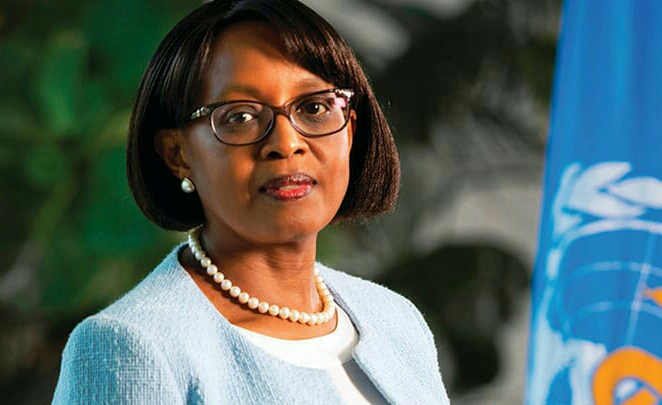WHO Regional Director for Africa, Dr Matshidiso Moeti
has hinted that with adequate investment in midwifery, the 4.3 million lives could be saved annually by 2035, adding Midwives are central to the prevention of maternal and newborn deaths, and stillbirths.
This has particular relevance for the WHO African Region, which records about 196 000 maternal deaths each year, along with the deaths of one million babies younger than one month.
She gave this hint in her message to commemorate the 2022 International Day of the Midwife, providing the opportunity to honour the work of midwives, and promote awareness of the crucial care that midwives provide to mothers and their newborns.
This year marks the establishment, 100 years ago, of the International Confederation of Midwives (ICM). There are currently 143 Midwives’ Associations representing 124 countries worldwide, including the Confederation of African Midwives Associations (CONAMA), which was inaugurated in 2013.
According to her: “Unfortunately, if current trends persist, only 300 000 midwifery jobs are likely to be created in low-income countries, with the shortage of midwives set to increase to 1 million by 2030. This has serious implications for the Sustainable Development Goal target of reducing the global maternal mortality ratio to less than 70 per 100 000 live deaths before 2030.
The contributions that midwives have to make towards achieving the Sustainable Development Goals and Universal Health Coverage cannot be overestimated. Midwives have been strengthening Primary Health Care for decades, acting as a critical link between women and the health system, and making pregnancy and childbirth safer and more secure.
“Fully integrated into the health care system, and with the necessary enabling support, midwives have the capacity to provide a wide range of clinical interventions, so contributing to broader health goals. These include advancing Primary Health Care, addressing sexual and reproductive rights, promoting self-care interventions, and empowering women.
“Midwives, who have been an integral part of African medicine for centuries, are the front-line caregivers and backbone of maternal and child health care on the continent. They support women through pregnancy and childbirth, providing antenatal, intrapartum and post-natal care, and family planning services, as well as breast and cervical cancer screenings. In emergencies, they can also perform basic emergency obstetric care.
“According to the 2021 State of the World’s Midwifery report, by the WHO, the ICM and the United Nations Population Fund (UNFPA), the global shortage of midwives stands at 900 000, and is particularly acute in Africa.
“With estimates that 75% of essential needs for maternal and reproductive health care are met by midwives, it is concerning that the comparative figure for the WHO African Region is only 41%.”
She further stated that: “The African Region’s tragic record of maternal and infant deaths demands urgent interventions to expand the coverage of emergency obstetric and newborn services, along with a revision of the scope of practice to allow more task-sharing and task-shifting to mitigate the shortage of midwives.
“We, as WHO in the African Region, are working closely with our Member States to improve the quality of maternal and reproductive care. We are supporting the development and implementation of national strategies to accelerate the reduction of preventable maternal and newborn illness and death, and to improve every mother’s experience of care, by 2030.
“Despite significant progress in Africa to reduce preventable deaths related to pregnancy, childbirth, and the postpartum period, the interruption of services due to the COVID-19 response is only one of several challenges that still remain.
“Governments and partners need to substantially increase investment in the education, recruitment, deployment, retention and protection of midwives. This is essential if African countries are to be capacitated to increase coverage and quality of maternal services, while still responding effectively to health emergencies.
During the pandemic, midwifery has been impacted by restrictive practices introduced in maternal and newborn care to mitigate the risk of cross-infection. WHO, in collaboration with UNICEF and UNFPA, developed technical guidance for countries to enable continuity of essential Sexual, Reproductive, Maternal, Neonatal, Child and Adolescent Health services, while protecting and supporting midwives.
In addition, WHO advocates for the adoption of policies to combat sexual harassment and promote a safe and respectful work environment, for midwives and other health workers.
“On the International Day of the Midwife today, I urge governments, academic institutions, civil society and partners to invest in midwifery education, recruitment, regulation and protection. An investment in boosting the number of midwives in Africa will contribute to better health, gender equality, and inclusive economic growth.
“Let’s give these vital and cost-effective contributors to high-standard maternal care the attention they truly deserve”, she hinted.

